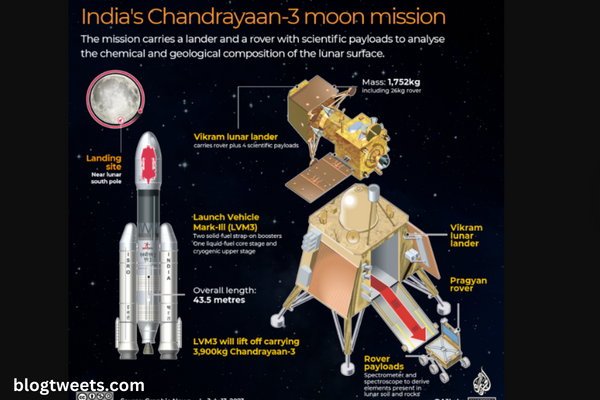Immigration policy in Europe are in disarray as numbers soar

Last week, as a boat carrying 400 migrants drifted along a dangerous migratory route in the central Mediterranean while running out of fuel, Italian authorities oversaw a significant rescue operation as a result of the alleged failure of Maltese authorities to recover those on board.
Before they eventually arrived on Italian shores on Wednesday, together with 800 migrants who had been stuck on another ship for more than 10 days, passengers’ cries for help had gone unanswered for nearly a week.
Witnesses claimed that several of the migrants collapsed to the ground once they reached the shore, terribly dehydrated and covered in vomit from the choppy waters. Life jackets weren’t worn by many.
Local NGOs, such as the German group Sea-Watch International, claimed they had regularly notified the Maltese government about the yacht but had been disregarded.
Sea-Watch stated, “Malta would rather take the great risk of 400 people dying than care for these people itself.
The Malta Independent reports that the Armed Forces of Malta (AFM) confirmed to regional media that no one on board the ship requested a rescue. A request for response from CNN went unanswered.
The incident, however, was only the latest spat between EU nations, bringing new attention to the bloc’s inability to agree on who should take in an influx of migrant arrivals, which critics claim only serves to cause more pain and tragedy.
Two other boats, each carrying about 450 passengers, had been seen at sea by the time the individuals in the first two boats had eventually made it to land. Once more, Sea-Watch International informed the Maltese and Italian authorities, which it confirmed to CNN, but neither government promptly initiated a rescue operation.
Conflict, global inequality, and the climate disaster have all contributed to a dramatic increase in the number of undocumented immigrants arriving by sea on European coastlines so far this year.
According to the most recent statistics from the UN refugee agency (UNHCR), more than 36,000 migrants arrived in the Mediterranean region of Europe between January and March this year, more than twice as many as during the same time in 2022. It is the most since the refugee crisis peaked in 2015 and lingered into the first few months of 2016, when the landing of more than a million migrants on European ports caused EU cooperation to disintegrate into squabbles and border mayhem.
In comparison to 2% who arrived by land so far this year, more than 98% have arrived by water, the largest percentage since 2016. According to UN data, 522 people are reported to have perished or vanished while traveling, illustrating the dearth of safe and authorized routes open to refugees and asylum seekers.
In order to escape these extremely challenging circumstances at home, people flee, according to Jenny Phillimore, a professor of migration and superdiversity at the University of Birmingham in central England.
“Why are they boarding the boats and taking such risks? They are at a loss because there are no legal and safe alternatives.
The absence of cooperation
In quest of safety and better economic opportunities, tens of thousands of migrants attempt perilous journeys to Europe every year as they avoid war, persecution, and poverty.
The absence of safe and authorized migration routes, however, can have fatal repercussions for refugees and asylum seekers.
At least 28 migrants perished in March when their boats capsized off the coast of Tunisia while they attempted to cross the Mediterranean Sea to Italy. A wooden boat transporting migrants from Turkey collapsed on rocks off the southern Italian region of Calabria the month before, killing at least 93 people.
In December, a tiny boat reported to be carrying migrants sank in the English Channel, one of the busiest shipping lanes in the world, killing four people farther north.
According to Phillimore, migrant boats are frequently overloaded and unsuited for the journey, and when resources are needed to save those on board, European countries may transfer responsibility since the government “don’t want people landing on their shores,” causing them to deflect the burden.
Italy has historically been one of the nations that, compared to northern European nations, has had a higher share of immigration across the Mediterranean. Even though the EU Commission sought to implement shares and quotas, she claimed that it had not been successful.
Following the arrival of the migrant boats, Italy’s cabinet declared a state of emergency on Tuesday. Even though the people aboard the ships are from nations that are eligible for asylum, they are still seen as migrants. They are not acknowledged as refugees until the drawn-out procedure is finished.
Giorgia Meloni, the right-wing populist prime minister of Italy, is planning to introduce new legislation this month that will tighten regulations and include forced repatriation for migrants who do not fit the criteria for refugee status. A warning to leave the nation is currently sent to migrants who don’t match such requirements, although expulsion is rarely enforced unless they are stopped by law authorities.
Given the overwhelming backing of opposition legislators, the European Union, and Meloni’s sizable majority in parliament, the reforms have a good chance of passing. Italy has urged its EU allies for assistance in processing and repatriating migrants as well as in housing those who do meet the criteria for refugee status under UNHCR standards.
‘Not doing their part,’
Humanitarian organizations have criticized authorities in other parts of Europe for suggesting policies that would restrict border entry in an effort to relieve pressure on wealthy nations, where the capacity to deal with undocumented migrants is at capacity.
The UK government has recently been under fire from opposition MPs and human rights activists for its “cruel” and unrealistic plans to shelter migrants on barges and in abandoned military bases rather than in hotels.
It happened at the same time as the government of British Prime Minister Rishi Sunak was accused of breaking international law with a bill that would send migrants and asylum seekers who arrive in the UK by boat either to Rwanda or back to their place of origin.
The UK government reports that 74,751 asylum applications were submitted there in 2022. Between 2020 and 2022, the overall number of persons awaiting an asylum judgment more than doubled, rising from about 70,000 to 166,300, according to the Home Office. Critics claim that the UK’s immigration system has been mismanaged and is ineffective.
“The bill would prevent a large group of extremely vulnerable refugees from relying on human rights protections, by leaving it up to the Home Secretary to decide who should be protected and who should be deported – and excluding the courts almost entirely,” Adam Wagner, a prominent human rights attorney, told in March.
The Italian Interior Ministry reports that 77,195 people applied for asylum in Italy last year. 52,625 of those were investigated, and 53% of the applications for asylum were turned down. Those who are turned away may file an appeal, but the majority elude capture.
According to the French Interior Ministry, 56,179 of the 137,046 asylum claims that were registered in France in 2022 had their cases granted. This is further west. 244,132 asylum claims were submitted in 2022, according to the Federal Office for Migration and Refugees in Germany. In that group, 72.3% of the requests were approved, some of which included backlog requests from the previous year.
The European Union Agency for Asylum reports that 37,300 asylum requests were submitted in Greece, which is a third more than in 2021. 30,886 of them were evaluated, and of those, 19,243 were approved while 11,643 were rejected.
A month earlier, the UNHCR denounced claims that up to 100 migrants had been stripped of their clothing at the Greek-Turkish border. Greece completed constructing a 40 kilometer (25 mile) wall along its border with Turkey in 2021 after worries that an influx of refugees seeking asylum as a result of the Taliban taking control of Afghanistan would occur.
When millions of refugees and migrants from Syria, Afghanistan, and Iraq crossed into Europe in the middle of the 2010s, Greece was at the epicenter of that continent’s migration crisis. Since then, it has adopted a harsh position and rejected requests from Turkey and international groups to let more people pass its borders.
“The answer to this problem is not just one country’s response, but also the responses of the nations that have fueled geopolitical inequality and created the kinds of issues that people are fleeing,” Additionally, the Global North has a responsibility, and they are not doing their part, according to Phillimore.
“The Global North (countries) have more wealth, but they are taking far fewer people.”
“Preserving lives,”
Researchers claim that the inability of European politicians to coordinate a cogent response to rising migrant numbers and move asylum seekers throughout the continent has resulted in a “political deadlock.”
A convergence of political events, such as the development of ISIS, the Syrian civil war, and instability in Afghanistan in the Middle East and elsewhere, led a record number of people to flee their homeland and attempt to enter into Europe during the migrant crisis of 2015.
According to UNHCR, 1,000,573 migrants crossed the Mediterranean Sea to reach Europe that year, with about 4,000 people possibly drowning.
Libya was the entry point for the majority of refugees into the EU. Luca Barana, research fellow at Istituto Affari Internazionali (IAI) and coordinator of the T20 Italy Task Force on Migration, claimed that at the time, the EU had signed a new accord in the Mediterranean based on “cooperation with the Libyan authorities.”
After the civil war in Libya, Tunisia has taken on the role of the new entry point to Europe, but while an agreement exists between Italy and Tunisia, there isn’t a comparable one encompassing the entire EU. The number of people leaving Tunisia has also risen as a result of “growing adversity and discrimination against Sub-Saharan migrants residing in Tunisia,” Barana stated.
In contrast to pursuing a “cooperative” strategy with Tunisia, “the European Union is investing in enhancing border control infrastructure and increasing the number of returns and readmission,” Barana said.
The attempt by EU nations to back out of their promises to save refugees and asylum seekers stranded at sea has been deemed “deeply alarming” by Human Rights Watch (HRW).
“It is deeply alarming and disappointing that EU countries are trying to abdicate to their duties to rescue people in distress at sea under international law, as more people are being forced by conflict and human rights violations to undertake dangerous journeys across the Mediterranean to seek safety in Europe,” a spokesperson for the international NGO .
Liz Throssell, a spokesperson for the UN on human rights, has also urged an end to laws that permit abuses of migrants’ human rights. “UN Human Rights has also repeatedly denounced the suppression or impediment of humanitarian search and rescue operations, including through the seizure of vessels and the criminalization of aid givers and other defenders of migrant rights.”
After attempting to save migrant boats that were stranded at sea, a number of NGO employees encountered legal obstacles. After being detained in 2018 for assisting refugees who became caught in a boat after leaving Turkey, human rights organizations and the European Parliament strongly denounced a trial of 24 rescue personnel in Greece in January.
The migrants whose lives are in jeopardy should be given priority when it comes to the EU’s policy surrounding migrant boat arrivals in the area, according to Daniele Fiorentino, a professor of political science at Roma Tre University in Rome, Italy.
He told that although the situation may not be as dire as it was in 2015, the tragedy “…is the result of a weakness or ineffectiveness in the decision-making process both in Italy and in Europe.”
Who is overseeing the procedure and making the decisions to save persons who are lost at sea, and whose duty is it? Authorities and all of us should always keep in mind that preserving lives is the primary concern at hand in this situation because it is both urgent and obvious.









Im very happy to find this web site. I need to to thank you for ones time for this particularly wonderful read!! I definitely liked every bit of it and I have you saved to fav to check out new stuff on your website.